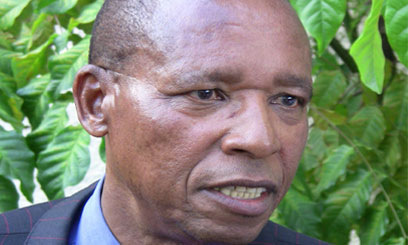NAIROBI, Kenya, Jul 22 – The ongoing debate on splitting the proposed Kenya National Human Rights and Equality Commission (KNHREC) as envisaged in the Constitution continues, following Justice and Constitutional Affairs Minister Mutula Kilonzo’s proposal to have three separate rights bodies.
During a forum hosted by the Kenya National Commission on Human Rights (KNCHR), on Friday, government officials and various rights groups voiced their differences on the issue.
KNCHR Chairperson Florence Simbiri-Jaoko said the Commission maintains its position against the split citing the burden it will place on tax payers and complication of access to services for citizens.
“You need to be able to go to one place where all your issues are dealt with. Because if you’re someone with disabilities and your rights have been violated and you come to a commission that tells you, ‘we don’t deal with that,’ it creates confusion. Secondly, it’s very heavy on the taxpayer to pay all these people,” she said.
She further added that the issue of overlapping had always existed and not hindered the Commission in addressing the necessary areas concerning gender, youth or disabled individuals.
“The problem was you had a gender commission and a human rights commission so the overlaps have been there. It is the KNCHR that reports on gender, equality, discrimination, youth and rights of children on the international and African Commission levels. This is something we’ve been doing, it will not be a new thing.”
National Commission on Gender and Development Chairperson Regina Mwatha, who supports the split, argued that the lack of legal provisions to address specific groups effectively in the existing Commission is reason to separate.
“We need legal provisions that address equality not just of women, but equality of persons with disability, representation of the youth. One big commission will not be able to handle all this because the budgetary allocations may not be able to handle all that.”
Also present at the forum, Garsen MP Danson Mungatana said the split would not only weaken the KNCHR, but it goes against the Constitution, which gives the necessary frame work for one body.
“The three Bills will have problems in Parliament. They are going to raise constitutional objections. The speaker has already directed that at the time that these Bills come for second reading we will have objections. I am sure the Speaker will sustain those objections. There is no need to pass three commissions that are not going to be as strong a one commission,” he said.
The Kenya National Commission on Human Rights, Public Complaints Standing Committee and the National Gender Commission were combined to operate as one entity when the Constitution was promulgated last year.
The CIC has already drafted three separate Bills for the three commissions.
The Kenya National Human Rights Commission Bill 2011 and National Gender Commission Bill 2011 have been approved by Cabinet and are awaiting Publication.
The Ombudsman Commission Bill 2011 has been finalized, only awaiting Cabinet approval. The three bills are expected for second reading before Parliament next week.












































